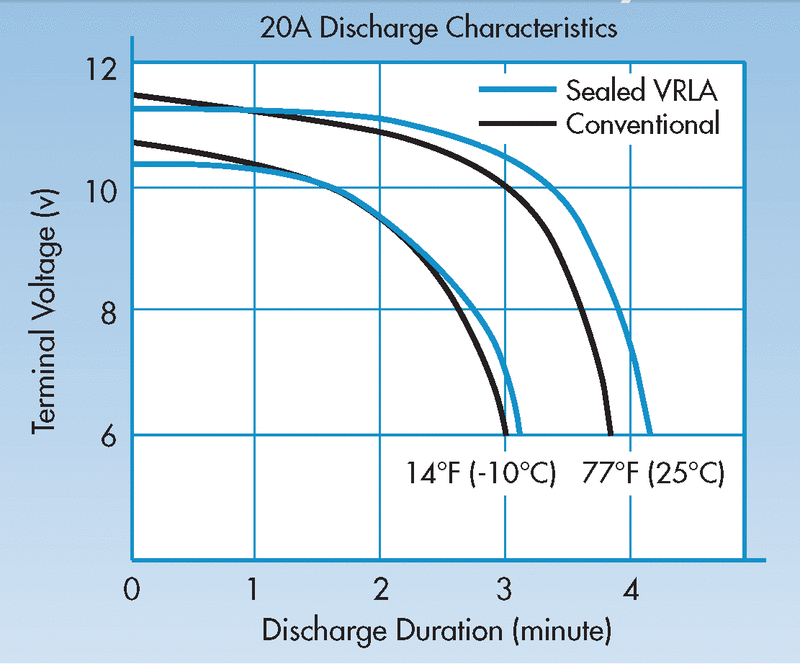DM2
Mechanical
- Oct 20, 2007
- 147
I've been doing some reading on Peukert's exponent but I'm still confused. I'm familiar with sizing a battery bank based on the system load, but in my current application, I want to make sure that at the end of 24 hours, the batteries are lower than "X" volts. My reason for this is that components in the field have a minimum operating voltage (18 volts) and when I do the voltage drop calculations, I'm ending up with 8 AWG wire with is too large for the device screw terminals, and expensive to buy and install.
The voltage drop is based on a starting volt of 20.4, with is 85% of the power supplies rating. The assumption is that if the system looses AC power, I'll be running on batteries and should assume a voltage loss after 24 hours on batteries, down to 85% of the system rating (i.e. 20.4 volts).
If I can demonstrate the math to show a final voltage of say 23 volts (or something close), I can use a higher starting voltage for my voltage drop calculations thereby decreasing my wire size.
I've been reading SmartGauge Discussion on Peukert's Equation, but still can't figure out what the equation would be, or if that's even where I should be looking. They have several spreadsheets:
[ol 1]
[li]Peukert.xls
From: Peukert in brief[/li]
[li]Peukert 2.xls
From: An in depth analysis of the maths behind Peukert's Equation (Peukert's Law)[/li]
[li]Peukert 3.xls
From: Peukert in brief[/li]
[/ol]
I'm hoping someone can help me out on the equation for this...
Regards,
DM
"Real world Knowledge isn't dropped from a parachute in the sky but rather acquired in tiny increments from a variety of sources including panic and curiosity."
The voltage drop is based on a starting volt of 20.4, with is 85% of the power supplies rating. The assumption is that if the system looses AC power, I'll be running on batteries and should assume a voltage loss after 24 hours on batteries, down to 85% of the system rating (i.e. 20.4 volts).
If I can demonstrate the math to show a final voltage of say 23 volts (or something close), I can use a higher starting voltage for my voltage drop calculations thereby decreasing my wire size.
I've been reading SmartGauge Discussion on Peukert's Equation, but still can't figure out what the equation would be, or if that's even where I should be looking. They have several spreadsheets:
[ol 1]
[li]Peukert.xls
From: Peukert in brief[/li]
[li]Peukert 2.xls
From: An in depth analysis of the maths behind Peukert's Equation (Peukert's Law)[/li]
[li]Peukert 3.xls
From: Peukert in brief[/li]
[/ol]
I'm hoping someone can help me out on the equation for this...
Regards,
DM
"Real world Knowledge isn't dropped from a parachute in the sky but rather acquired in tiny increments from a variety of sources including panic and curiosity."

